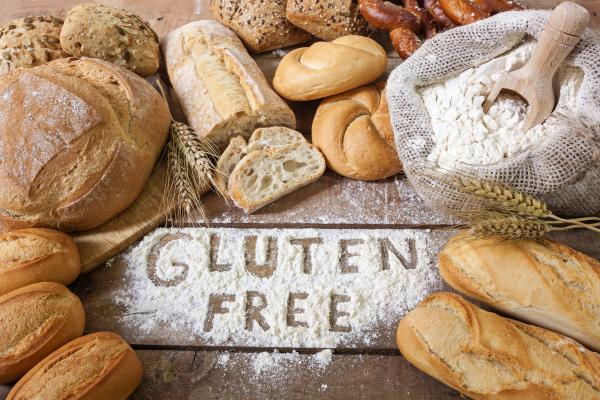People with celiac disease, an autoimmune condition in which the complex protein gluten stimulates the production of antibodies that damage the small intestine, must avoid gluten-containing grains (wheat, barley, and rye) and their products. It is a real life-long lifestyle change because the intestinal damage can be severe, resulting in malabsorption of many nutrients and growth retardation in children. (1)
For those people, the gluten-free fad has been a real boon. What was once a mail-order existence with few choices is now common on grocery store shelves, a $5 billion industry with lots of options. But there is a trade-off. Replacing that sticky protein means, among other things, extra sugar, extra fat, hydroxypropyl methyl cellulose and xanthan gum, hardly a health benefit. Knowing that, why would anyone adopt the diet unless they needed to?
People don't know that. As we have noted for years, they may have instead read not one but two New York Times bestselling diet books implicating wheat in various health issues and see gluten-free as having a health halo. Going gluten-free has even been promoted as a weight-loss plan, which is far from the truth. In many cases, a gluten-free product will have more calories than its conventional counterpart. For example, some mini pretzels contain 110 calories for 26 pieces, while gluten-free pretzels made by the same company list 120 calories per 25 pieces — not a huge difference, if you limit your consumption to just one serving. But since pretzels don't contain any fat, the gluten-free variety has additional carbohydrates or protein increasing the calorie count.
The fad doesn't seem to be going away. According to recent research, the proportion of the population with diagnosed celiac disease has remained pretty constant. Dr. Hyun-seok Kim from Rutgers University Medical School and colleagues analyzed data from three iterations of the NHANES surveys between 2009 and 2014 and published the results in JAMA Internal Medicine. During that period, over 22,000 persons who were at least six years old had undergone testing for celiac disease. Of those individuals, 106 (0.7 percent) tested positive for the condition, while 213 (1.1 percent) said they adhered to a gluten-free diet although they had not tested positive for celiac disease.
The prevalence of celiac disease was pretty constant throughout the study period — 0.7 percent in 2009-2010, 0.8 percent in 2011-2012, and 0.6 percent in 2013-2014. In contrast, the percent of people without a celiac diagnosis who claimed to eat a gluten-free diet, was 0.5, 1.0, and 1.7 percent respectively— a 3-fold increase. People aged 20-39 years had the greatest increase in non-celiac gluten-free choices (from 0.4 to 2.4 percent).
Can we mark this increase in gluten-free choices down to advertising and the latest fad? Companies are certainly rushing into a market where they can charge up to 240 percent more and feeding demand. But some people do feel better giving up those grains even if they are not celiac. It could be the nocebo effect (the opposite of placebo - not taking something makes people feel better). Or it could be other constituents in grains called FODMAPs (fermentable oligosaccharides, disaccharides, monosaccharides, and polyols) which could be fuel for bacterial fermentation in the GI tract, and can result in gas production, diarrhea and abdominal bloating. According to Dr. Daphne Miller from the University of California, San Francisco, a study of people with irritable bowel syndrome who ate a reduced FODMAP diet had alleviated symptoms. When gluten was introduced into that diet, it didn't cause their symptoms to flare again.
So while gluten-free has become a real fad, there's a possibility that any symptom relief from giving up grain isn't because of the gluten. Gluten might be getting a bad rap in that case.
That said, it's not healthier for people with normal GI tracts, and it really won't help you lose weight.
NOTES:
(1) Others who must also avoid wheat include people with wheat allergies — and gluten-free products benefit them too. Over the last few years, life has become easier for such people since gluten-free products abound.




